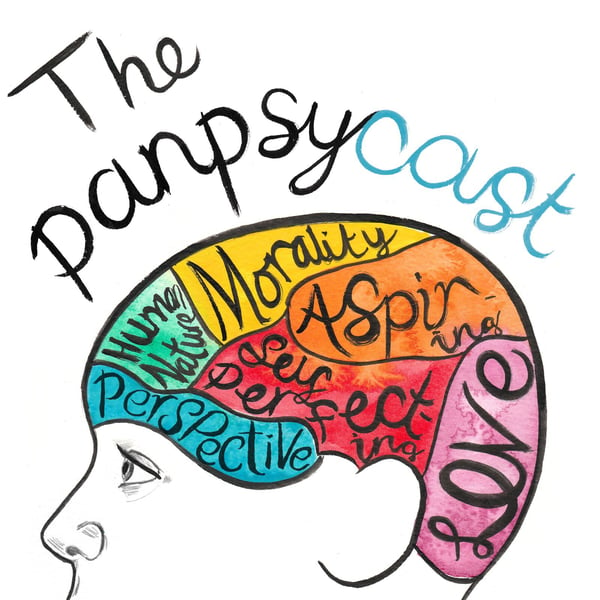Episode 32, Meta-Ethics (Part III - Emotivism)
The Panpsycast Philosophy Podcast
Jack Symes | Andrew Horton, Oliver Marley, and Rose de Castellane
4.8 • 604 Ratings
🗓️ 4 February 2018
⏱️ 36 minutes
🧾️ Download transcript
Summary
Please visit our Patreon page and show your support! (www.patreon.com/panpsycast) This episode is proudly sponsored by The Partially Examined Life Philosophy Podcast. For information, please visit www.partiallyexaminedlife.com. Everything you could need is on www.thepanpsycast.com! Please tweet us your thoughts at www.twitter.com/thepanpsycast. Meta-ethics is the attempt to understand the metaphysical, semantic, epistemological and psychological presuppositions of moral thought. It investigates our ethical language, in search of the meaning that lies behind it. Meta-ethics is concerned with are a broad range of puzzles, for example: What do we mean we make moral claims? Do our preferences or feelings motivate moral assertions? Or are we stating facts when we make moral claims? Is morality more a matter of taste than truth - and if it is a matter of truth, how do we learn about the moral facts? This episode we’ll be introducing you to three meta-ethical views. In Part I, we’ll be discussing naturalism, in Part II, we’ll be looking at intuitionism, in Part III, we’re going to dive into emotivism, and finally, in Part IV, we’ll be engaging in some further analysis and discussion.
Transcript
Click on a timestamp to play from that location
| 0:00.0 | Part 3, Emotivism. |
| 0:15.8 | Right, so we're looking at A.J. A.A. |
| 0:18.1 | For this part, who is the author of Language, Truth and Logic from 1936. I'll ask my own |
| 0:23.9 | question and I'll answer it. Who was A.J. A.J. A. Well, Sir Alfred Jules Fredier lived between |
| 0:29.6 | 1910 and 1989. He was educated at Eton College at Oxford University, after which he studied |
| 0:36.5 | the philosophy of logical positivism |
| 0:38.1 | at the University of Vienna, which will go into detail within a moment. From 1933 to |
| 0:43.9 | 1940, he lectured on philosophy at Christchurch, Oxford, and he was knighted in 1970, dying in |
| 0:50.2 | 1988. So for today, we're concerned with Aer's language, truth and logic, like I said. |
| 0:57.1 | Here he's going to present what we'll come to discuss as the verification principle, and he uses |
| 1:02.1 | this as a basis for his meta-ethical stance. Lusely stated, unless something can be verified, |
| 1:09.3 | then it's meaningless. So when I say God exists, |
| 1:12.1 | I can't verify that, so it's nonsense. And we're going to unpack these ideas here. |
| 1:17.3 | The logical positivists, as we mentioned before in previous episodes, it finds its roots in the |
| 1:22.8 | Vienna Circle. This is the view associated with them. So in the 1920s, we see a big group of philosophers, |
| 1:28.8 | analytic philosophers, trying to say what's meaningful and meaningless in language. So if you've |
| 1:35.6 | listened to the Wittgenstein episode, his early work was heavily influenced by these. |
| 1:40.2 | So the logical positivists are coming, going back to Hume from the first episode of Matter |
| 1:44.8 | Ethics are approaching their view of knowledge purely from a very radical, like, we know things |
| 1:51.4 | either through analytic truth propositions or we know them through synthetic truth propositions. |
| 1:57.3 | Anything that does not match that description is entirely nonsense. |
| 2:01.6 | So when you have a, well, what some people would say as a proposition, but Ayo would say is absolutely not one, |
... |
Please login to see the full transcript.
Disclaimer: The podcast and artwork embedded on this page are from Jack Symes | Andrew Horton, Oliver Marley, and Rose de Castellane, and are the property of its owner and not affiliated with or endorsed by Tapesearch.
Generated transcripts are the property of Jack Symes | Andrew Horton, Oliver Marley, and Rose de Castellane and are distributed freely under the Fair Use doctrine. Transcripts generated by Tapesearch are not guaranteed to be accurate.
Copyright © Tapesearch 2025.

